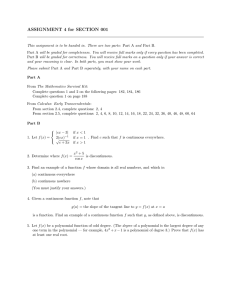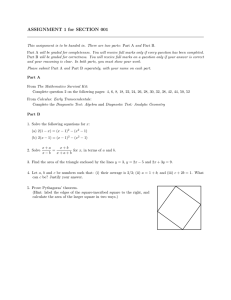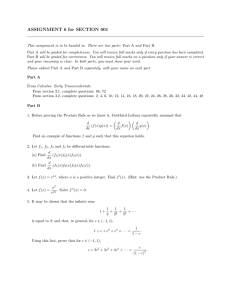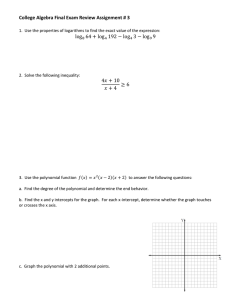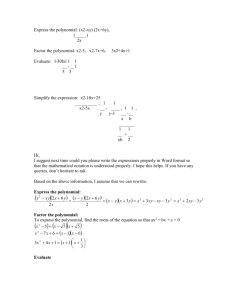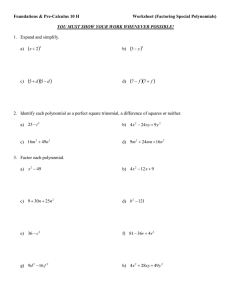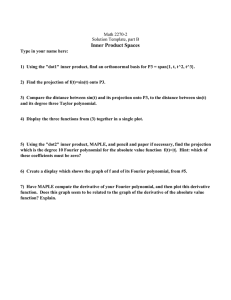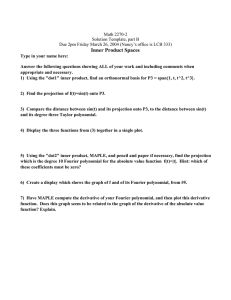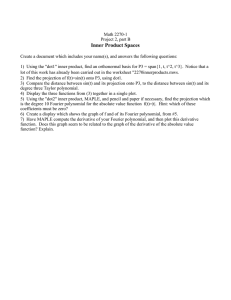ASSIGNMENT 2 for SECTION 001
advertisement
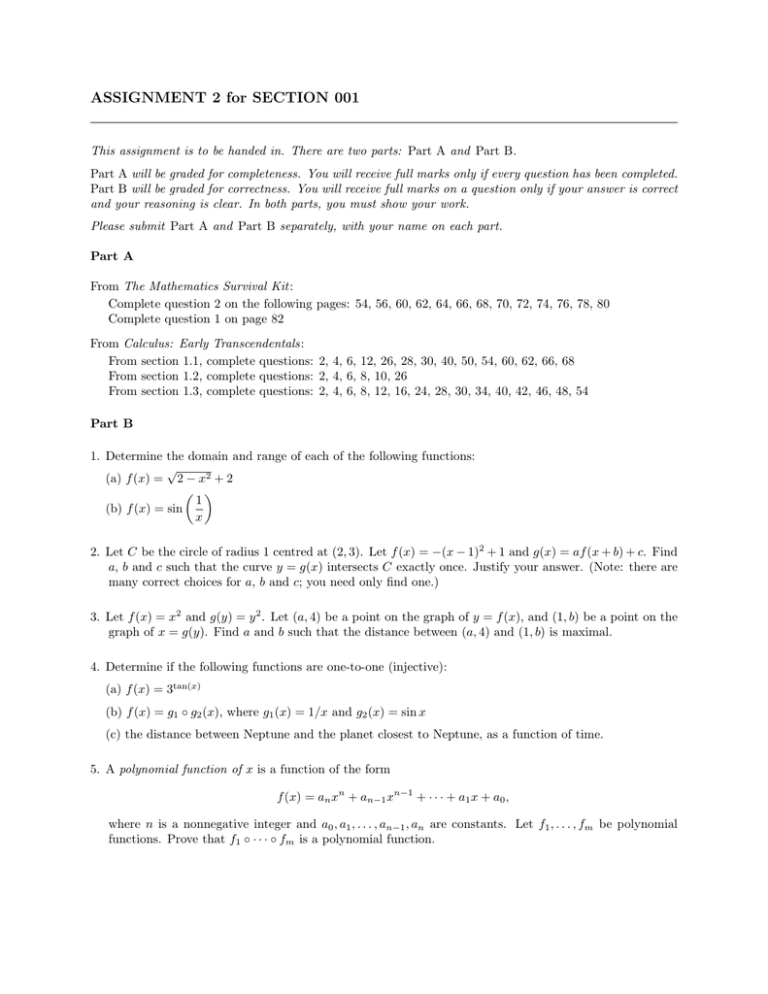
ASSIGNMENT 2 for SECTION 001 This assignment is to be handed in. There are two parts: Part A and Part B. Part A will be graded for completeness. You will receive full marks only if every question has been completed. Part B will be graded for correctness. You will receive full marks on a question only if your answer is correct and your reasoning is clear. In both parts, you must show your work. Please submit Part A and Part B separately, with your name on each part. Part A From The Mathematics Survival Kit: Complete question 2 on the following pages: 54, 56, 60, 62, 64, 66, 68, 70, 72, 74, 76, 78, 80 Complete question 1 on page 82 From Calculus: Early Transcendentals: From section 1.1, complete questions: 2, 4, 6, 12, 26, 28, 30, 40, 50, 54, 60, 62, 66, 68 From section 1.2, complete questions: 2, 4, 6, 8, 10, 26 From section 1.3, complete questions: 2, 4, 6, 8, 12, 16, 24, 28, 30, 34, 40, 42, 46, 48, 54 Part B 1. Determine the domain and range of each of the following functions: √ 1. (a) f (x) = 2 − x2 + 2 1 1. (b) f (x) = sin x 2. Let C be the circle of radius 1 centred at (2, 3). Let f (x) = −(x − 1)2 + 1 and g(x) = af (x + b) + c. Find a, b and c such that the curve y = g(x) intersects C exactly once. Justify your answer. (Note: there are many correct choices for a, b and c; you need only find one.) 3. Let f (x) = x2 and g(y) = y 2 . Let (a, 4) be a point on the graph of y = f (x), and (1, b) be a point on the graph of x = g(y). Find a and b such that the distance between (a, 4) and (1, b) is maximal. 4. Determine if the following functions are one-to-one (injective): 4. (a) f (x) = 3tan(x) 4. (b) f (x) = g1 ◦ g2 (x), where g1 (x) = 1/x and g2 (x) = sin x 4. (c) the distance between Neptune and the planet closest to Neptune, as a function of time. 5. A polynomial function of x is a function of the form f (x) = an xn + an−1 xn−1 + · · · + a1 x + a0 , where n is a nonnegative integer and a0 , a1 , . . . , an−1 , an are constants. Let f1 , . . . , fm be polynomial functions. Prove that f1 ◦ · · · ◦ fm is a polynomial function.
